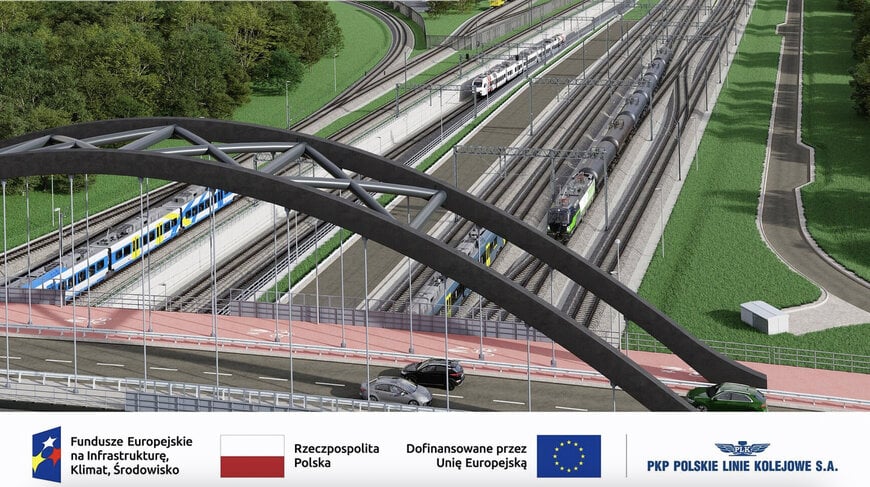railway-international.com
16
'25
Written on Modified on
STRABAG secures €268M Polish railway modernisation to boost transport
STRABAG to modernise 38 km tracks, bridges and platforms in Maksymilianowo. Project enables 200 km/h trains, strengthens Baltic-Adriatic Corridor.
www.strabag.com

STRABAG Sp. z o.o., the Polish subsidiary of STRABAG, has signed a contract with Poland’s national railway operator PKP for the planning and execution of extensive construction works at Maksymilianowo railway station. The 268-million-euro project is part of the strategic modernisation of rail line 201 between Maksymilianowo and Kościerzyna, which is important for the Baltic-Adriatic Corridor and the trans-European TEN-T network. The construction period is 51 months, with completion scheduled for December 2029.
Maksymilianowo station is a strategically important rail hub in the Kuyavian-Pomeranian Voivodeship, where freight lines 201 and 131 intersect. In future, this will be made much safer by a complex railway flyover. The extensive modernisation of the entire station area will also significantly increase line capacity, facilitate freight transport to the port of Gdynia and promote the region’s economic and tourist development.
The project includes, among other things:
- Around 38 kilometers of track reconstruction,
- Three platform modernisations including a barrier-free access tunnel with lifts,
- Four railway bridges, one road bridge and one road viaduct,
- A railway flyover
- New signal control system,
- The catenary network, including new support structures.
"Poland has become one of STRABAG's most important markets alongside Germany and Austria, particularly in infrastructure construction. The modernisation of Maksymilianowo station adds to a series of railway projects in which we have demonstrated our expertise – for example, for the Kraków agglomeration railway, the Poznań–Szcecin line and, currently, the Żywiec–Sucha Beskidzka section," said Péter Glöckler, Member of the Management Board for STRABAG SE's South + East segment.
Once completed, the upgraded lines in Maksymilianowo will allow freight trains to travel at speeds of up to 120 km/h, and passenger trains at up to 160 km/h (line 201) and 200 km/h (line 131). The project is seeking funding from European Fund for Infrastructure, Climate and Environment (2021–2027), which is co-financed by the EU.
With decades of experience in rail infrastructure, STRABAG is one of Europe's leading companies when it comes to the planning, construction and modernisation of railway lines. An extensive fleet of large-scale railway track construction equipment enables the efficient delivery of complex projects. In STRABAG's core markets in Eastern Europe, rail construction is gaining importance, supported by national and EU investments. STRABAG is currently implementing major rail projects in Czechia, Poland, Germany, and Croatia.
www.strabag.com
Once completed, the upgraded lines in Maksymilianowo will allow freight trains to travel at speeds of up to 120 km/h, and passenger trains at up to 160 km/h (line 201) and 200 km/h (line 131). The project is seeking funding from European Fund for Infrastructure, Climate and Environment (2021–2027), which is co-financed by the EU.
With decades of experience in rail infrastructure, STRABAG is one of Europe's leading companies when it comes to the planning, construction and modernisation of railway lines. An extensive fleet of large-scale railway track construction equipment enables the efficient delivery of complex projects. In STRABAG's core markets in Eastern Europe, rail construction is gaining importance, supported by national and EU investments. STRABAG is currently implementing major rail projects in Czechia, Poland, Germany, and Croatia.
www.strabag.com

